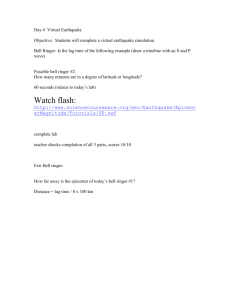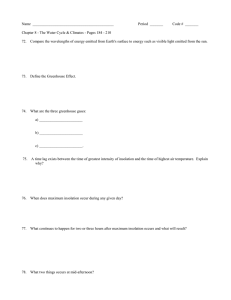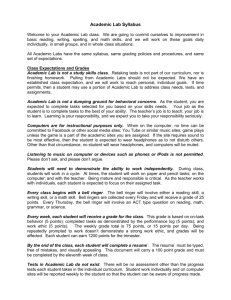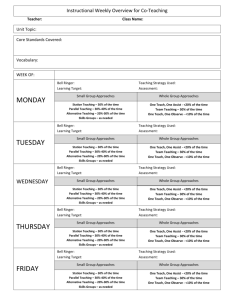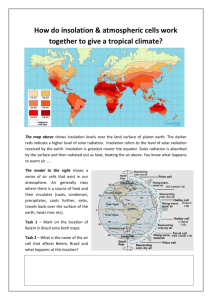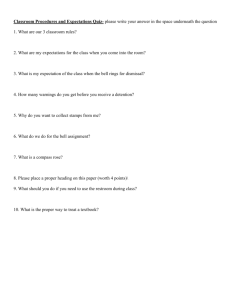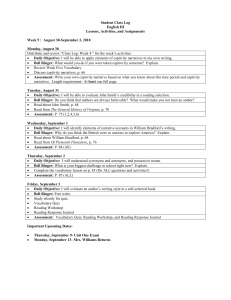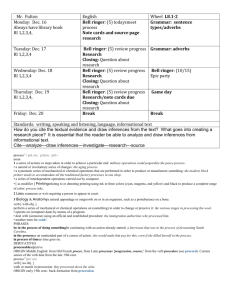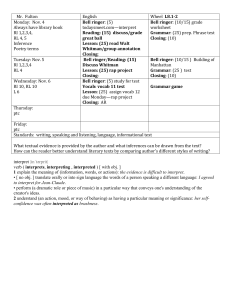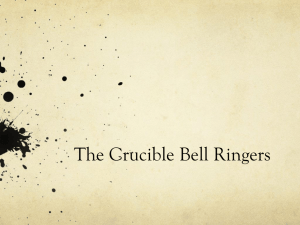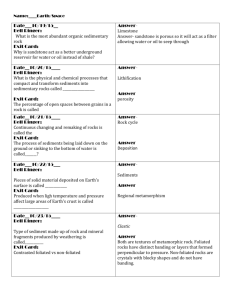lesson plan
advertisement
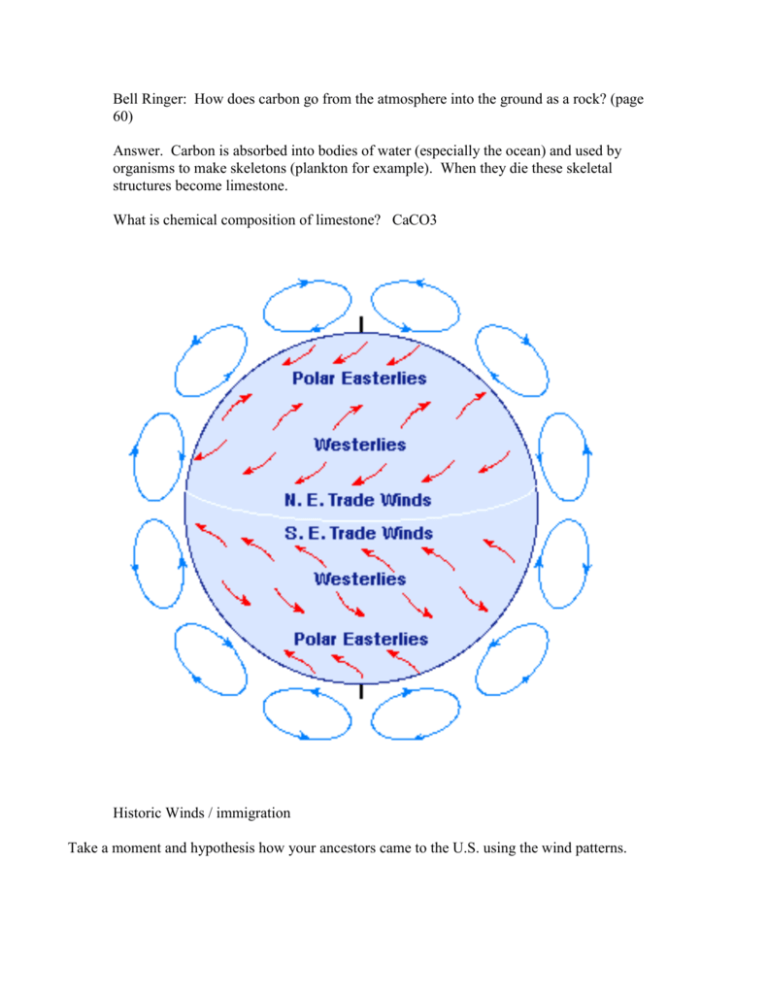
Bell Ringer: How does carbon go from the atmosphere into the ground as a rock? (page 60) Answer. Carbon is absorbed into bodies of water (especially the ocean) and used by organisms to make skeletons (plankton for example). When they die these skeletal structures become limestone. What is chemical composition of limestone? CaCO3 Historic Winds / immigration Take a moment and hypothesis how your ancestors came to the U.S. using the wind patterns. Bellringer: The Coriolis effect is due to: a) variations in the amount of solar radiation reaching different locations. b) seasonal changes in the levels of solar radiation at a given location. c) The density of the oceans. d) the Earth's orbit. e) the Earth's rotation. Answer: E Earth's rotation. Bellringer- When does Lewisburg have the longest day (most daylight hours)? June (Summer) Remind students what Duration of insolation isHours of daylight. Watch video: http://www.dragon.k12.pa.us/facstaff/HS/wagner_v/www/duration%20of%20insolation. mov Students complete Angle of Insolation lab and all questions associated with the lab packet. . Notes- solar budget Of 100% of solar energy aimed Earth; 30% reflected, 20% absorbed by atmosphere, 50% reaches surface Discuss lab results. Exit Bellringer- why is it warmer in the summer and colder in winter? Angle of insolation is highest, and duration of insolation is longest. Objective: Students will complete a virtual earthquake simulation. Bell Ringer- Is the lag time of the following example (draw a timeline with an S and P wave) Possible bell ringer #2: How many minutes are in a degree of latitude or longitude? 60 seconds (relates to today’s lab) Watch flash: http://www.sciencecourseware.org/eec/Earthquake/Epicent erMagnitude/Tutorials/SP.swf complete lab teacher checks completion of all 3 parts, scores 5/5 Exit Bell ringerHow far away is the epicenter of today’s bell ringer #1? Distance = lag time / 8 x 100 km
